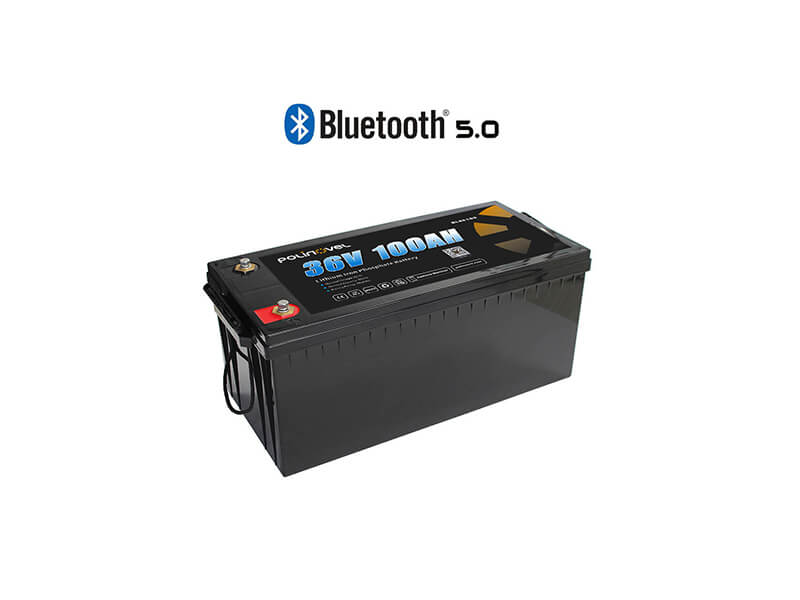Compared to lead-acid batteries and other types of lithium batteries, lithium iron phosphate batteries offer many benefits, including improved discharge and charge efficiency, a longer lifespan, and the capacity to undergo repeated deep cycling while retaining their power. Even though LiFePO4 batteries are often more expensive, their overall cost is significantly reduced throughout the product’s lifetime.
Before getting into the mechanics of a deep cycle battery, it is critical to have a basic grasp of batteries. These fundamentals include what a cycle, depth of discharge, and what it means to “deep drain” a battery. One battery cycle represents a full discharge followed by a full battery recharging. What precisely does it imply when it says “full discharge”?
Moreover, this article will go over what a deep-cycle battery is and what factors to consider when purchasing a deep-cycle battery.
Related Blog: >> Lead Acid VS. Lithium Ion Battery: Which One is Better for You?
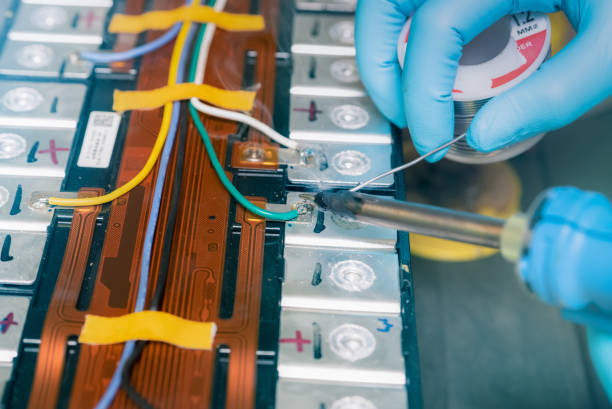
What Does Deep Cycle Battery Mean?
A deep cycle battery is intended to provide steady power output over an extended time, depleting the battery significantly before it needs to be recharged. On the other hand, a normal automobile battery is designed to create a brief burst of energy, typically enough to start the vehicle, before handing over power generation to the alternator. The battery is not intended to be cycled in this case because it must constantly be maintained fully charged.
There are various types of deep cycle batteries, such as flooded lead acid batteries, sealed lead acid batteries (AGM and Gel batteries), and lithium batteries. Lithium batteries are a relative newcomer compared to lead acid batteries and are gaining prominence.
Lithium batteries qualify as deep-cycle since they can be completely depleted and recharged. Regardless of discharge rate, lithium batteries can maintain a constant voltage. They also provide various other advantages. They are about one-third lighter than lead acid batteries, have a longer cycle life, can be recharged quickly, and so on.
One of the most common types of lithium battery on the market is the LiFePO4 battery. It is frequently employed in deep-cycle applications such as trolling motors, yachts, and solar energy systems.
Differences Between Deep Cycle Battery, Starter Batteries, and Dual Purpose Batteries
A deep cycle battery is a type of battery that provides power over an extended time. Because it can be recharged several times, its design allows it to endure longer. The varieties of batteries are listed below to help understand what a deep cycle battery is used for.
Deep Cycle Battery
The purpose of the trolling motor’s deep cycle battery should be to supply it with a steady supply of energy and power over an extended length of time. Most GPS systems, fish finders, running lights, radios, and trolling motors benefit from these batteries. Consumers can get the best of both worlds with a dual-purpose motor. However, when wanting a battery that will power the trolling motor for a more extended time, check into deep cycle batteries.
Since deep-cycle batteries can deliver energy over an extended time, they are ideally suited for uses that demand more than a speedy beginning.
The following are among the most typical applications for deep-cycle batteries:
- ● Automobiles used for recreation
- ● Applications in the sea
- ● Golf carts
- ● Material handling, such as forklift operation
- ● Renewable energy generated off-grid
Hybrid batteries are an alternate choice for specific applications, most notably maritime applications. A hybrid marine battery can provide both a burst of starting power and sustained power for marine applications, although it has a shorter lifespan than a dedicated battery.
Starter Batteries
Starting or cranking is a distinct technique requiring brief but significant electrical power spikes. In contrast to a deep cycle, the beginning phase is distinguished by a period of activity followed by a period of inactivity. It is only necessary to discharge a small fraction of the battery’s maximum capacity to produce these brief but strong jolts. After the engine or motor has started, the battery will be recharged.
Starting batteries are used to start the ignition of a boat. When it comes to marine batteries, they must start the engine and then provide enough power to keep the engine and connected gadgets running. High-Performance series batteries can be used as both marine starting batteries and deep cycle batteries to power onboard equipment.
When it comes to the weight of Polinovel Lithium-ion starter batteries is one-third that of lead-acid batteries, decreasing vehicle weight and boosting safety. The housings of the starter batteries are lightweight and have a rapid discharge rate. Motorcycles, vehicles, and boats are among the application fields.
What kind of battery is best for this application? Starting batteries are useful for initiating tasks (such as starting an automobile engine).
These batteries are sold online and in stores under a variety of brand names, including:
- ● Battery jacking
- ● Batteries for starters
- ● SLI batteries (starting, lighting, and ignition)
Regardless of their name, these are the batteries that will perform well for starting.
Dual Purpose Batteries
DuDual-purpose batteries are a type of deep-cycle battery that may provide both beginning and deep-cycle power for recreational vehicles and marine applications. Dual-purpose batteries, such as marine batteries, provide enough energy to start and turn over the engine and keep the trolling motor running continually. Dual-purpose batteries, as the name implies, can be used for both functions.
Lithium batteries, such as this Polinovel DUAL24200 lithium battery, are high-performance dual-purpose batteries capable of starting and cycling. It generates 1,200 CCA, making it suited for applications requiring a high amp demand and a large amount of power for a short time. It also has a high continuous discharge rate, which allows it to deliver enough power when in use. This LiFePO4 battery provides the best balance of engine startup and extensive cycling.
Because of its intelligent BMS and solid structure, which assures a high safety level and good anti-vibration performance, this lithium battery is well suited for use in maritime applications such as bass boats, trolling motors, yachts, and so on.
Furthermore, dual-purpose batteries have significant advantages over single-purpose batteries. They frequently provide more capacity for their size, greater vibration tolerance, longer life cycles, and minimal maintenance requirements than single-purpose varieties.
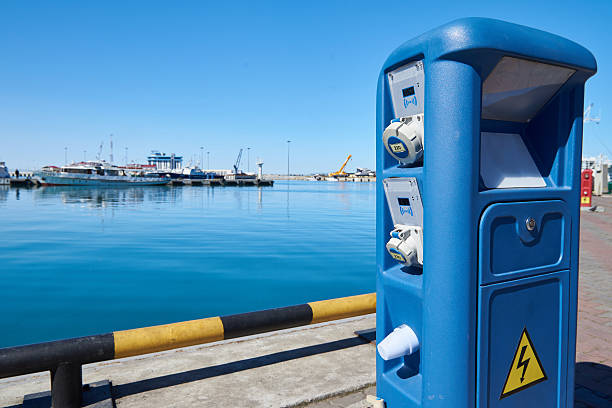
How Long Does Deep Cycle Battery Last?
Many consumers question how long do deep-cycle batteries last. Depending on the manufacturer’s suggested depth of discharge, a deep-cycle battery can generally last three to five years (DoD).
Every battery has a set number of charge/discharge cycles. A charge/discharge cycle is any transition from a full or almost full charge to a discharge that completely depletes the battery’s energy. If one always discharges one’s battery by 50%, it will have twice as many charge/discharge cycles as someone who always empties their battery by 90%.
A deep cycle battery should last between 300 and 500 charge/discharge cycles, though this depends on how it is used and the type of battery one has (6 volts, 12 volts, etc.)
What factors influence the longevity of a deep-cycle battery? A variety of factors influence the battery’s lifetime. The most important factors are:
- ● The care and upkeep provide for it
- ● The temperature of the environment where it will be used
- ● The amount of electricity being used
As the battery ages, its internal resistance rises, reducing its ability to hold a charge. This is due to the gradual accumulation of lead sulfate within the battery’s plates.
Deep cycle battery monitoring and maintenance. Any deep-cycle battery’s life expectancy is difficult to predict and greatly depends on how well the battery is maintained and monitored. The better it is maintained, the longer it will endure.
Common Types of Deep Cycle Battery
Deep cycle batteries are required for many applications, including marine, RV, golf cart, and solar energy systems. These batteries are designed to withstand frequent deep discharges, making them ideal for providing consistent power over a long time.
Lithium Ion Deep Cycle Battery
Deep-cycle Lithium Ion (Li-Ion) batteries are rechargeable batteries commonly utilized in deep-cycle applications such as solar power and off-grid systems. Because Li-Ion batteries have a higher energy density and are lower in weight than traditional lead acid batteries, they are an appealing option for many applications.
Li-Ion batteries are more technologically advanced than prior deep-cycle battery types, allowing for more efficient charging. This indicates that they can be recharged and reused on multiple occasions and have storage capacities.
Deep-cycle Lithium Ion offers higher charge retention than other types of deep-cycle batteries, allowing it to keep its charge for extended periods without needing to be recharged. Due to their superior performance, Li-ion batteries are widely regarded as the gold standard for deep-cycle batteries.
Aside from superior performance, Li-Ion batteries often have a longer lifespan and require less maintenance. As a result, they are a good choice for applications where periodic maintenance would be inconvenient or costly.
However, Li-Ion batteries are frequently more expensive than deep-cycle batteries, so it is critical to weigh the costs and benefits when deciding which type of battery is ideal for one’s needs.
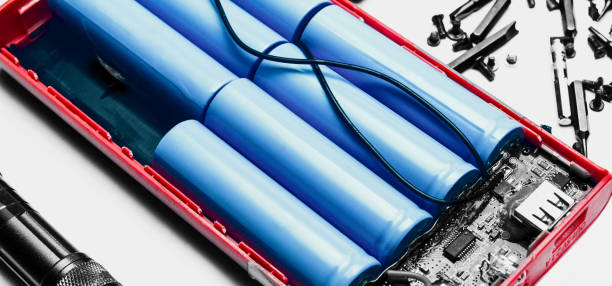
Flooded Lead-Acid Batteries
Flooded lead-acid batteries are ideal for stationary applications. The most common deep-cycle battery is ideal for various applications, including solar power systems and off-grid arrangements.
They are competitively priced and straightforward to connect to battery banks for off-grid solar energy storage and backup power applications. Affordability, durability, and long life cycles – up to five years or more with regular maintenance – are all advantages of flooded lead-acid batteries.
These batteries convert chemical energy into electrical energy with the help of a lead-acid electrolyte. Standard 12V batteries, 2V cells, and even 6V variations are available in a range of sizes and configurations. Because of their versatility and low cost, 12V batteries are the most popular.
These batteries, however, can be cumbersome and require periodic maintenance, such as equalizing charges and replacing them with distilled water.
Gel Deep Cycle Batteries
Gel Deep cycle batteries’ electrolyte is suspended in a silica-based gel, as the name implies. They have various advantages over other varieties, including a longer lifespan, higher performance, and dependability. It also protects them from vibration, heat, and overcharging damage. The gel also ensures that the discharge rate is moderate and consistent, making these batteries suitable for trolling motors and other slow-discharge applications.
As a result, they’re popular for things like golf carts, marine and RV use, and off-grid solar or wind power systems. Moreover, the gel prevents gassing and leakage, which is useful in confined spaces like boats and RVs.
Furthermore, the electrolytes packed in a silica-based gel are exceptionally shock-resistant and suitable for use in motorcycles and trolling motors. Electrolytes are less prone to freeze at low temperatures since they are already thick paste. Gel batteries have slow charging speeds and a high starting cost.
Absorbed Glass Mat (AGM)
One of the most prevalent types of deep-cycle batteries is Absorbed Glass Mat (AGM) batteries. Golf carts and scooters are examples of such vehicles. They are also widely used as UPS backup batteries and solar backup power applications.
Because of its low maintenance requirements and excellent performance, this battery is suited for specific applications. AGM batteries are made with an electrolyte floating between two thin fiberglass mats, preventing leakage and ensuring a steady electrical current flow. AGM deep cycle batteries are designed to be recharged numerous times and can deep cycle for an extended time.
Despite these advantages, AGM deep-cycle batteries have many drawbacks due to their sensitivity. AGM batteries should never be discharged below 50%, as this might cause irreversible damage and shorten their lifespan.
They are also significantly more expensive than FLA batteries, must be charged carefully to avoid overcharging, and cannot be used in extremely cold temperatures.
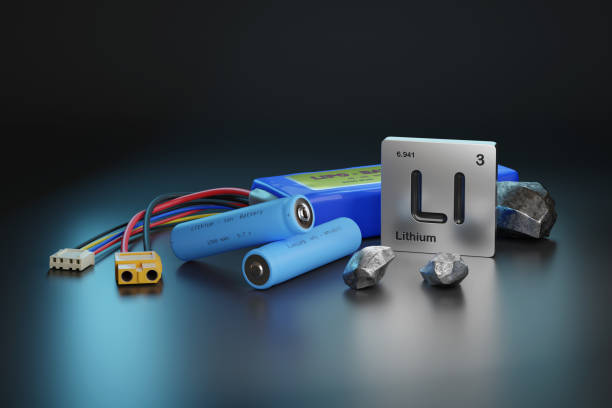
Why Lithium Batteries Are Recomendable Deep Cycle Batteries
Lithium deep-cycle batteries are quickly becoming the favored choice for powering a wide range of electrical devices. They are the preferred battery technology for electric vehicles and off-grid power solutions due to their ability to deliver high power in a lightweight and tiny design.
It’s superior dependability, longevity, and cost-effectiveness. The following are the reasons why lithium batteries are becoming more popular for deep-cycle applications.
Size And Weight
Lithium batteries are frequently utilized in electronics, trolling motors, fish finders, running lights, and radios due to their tiny size and low weight. Because lithium-ion batteries are much smaller and lighter than traditional lead acid or nickel-cadmium batteries, they are a good choice for portable electronics. A lithium iron phosphate battery is two-thirds the size and weight of a lead-acid battery. LiFePO4 is a lightweight, high-energy-density material.
Furthermore, lithium batteries have a longer lifespan than other types of batteries. This is because they do not self-discharge as quickly as other batteries, allowing them to be stored for longer without losing their charge.
Lithium-ion batteries are up to 70% lighter than traditional lead-acid batteries. This makes them ideal for lightweight applications such as electric cars and portable medical equipment. Furthermore, lithium-ion batteries take up far less space than other battery types with equivalent power outputs, making them perfect for tight spaces.
Because of their small size and lightweight, lithium-ion cells are perfect for ultraportable goods. Furthermore, lithium-ion batteries often have better energy densities than other batteries, allowing them to store more energy per unit volume. This makes them very useful in things that must work for a long time without being recharged, such as backup systems.
Voltage Rating
Lithium batteries have a far higher voltage output than other battery types, ranging from 3V to 4.2V per cell. Because lithium batteries have a high electric potential, they can power more complicated electronics and pull peak amperage loads, making them a suitable solution for high-end electronic devices that require more watts for optimal functioning.
Moreover, lithium batteries have a far higher energy density than other battery types, which means they can store more energy in the same amount of physical area.
When choosing a battery based on its voltage rating, it is critical to consider the following criteria. The ability of the battery to resist the load is the most essential component. A low-voltage battery cannot offer the necessary power to operate the device and may cause it to fail.
A higher voltage rating battery will be better suited to handle the load, but it will also have a faster self-discharge rate, which could eventually lead to the battery running out of power.
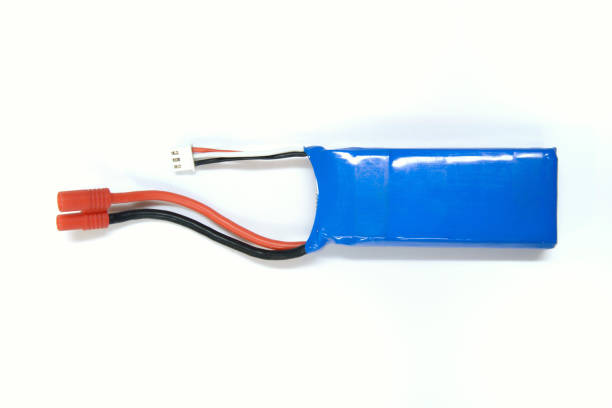
Charging Time
In terms of charging time, lithium batteries have several advantages. Because lithium batteries are lighter and smaller than other types of batteries, they are accessible to transport and store. This makes them ideal for circumstances where size and weight are critical factors. Furthermore, lithium batteries charge far faster than other types of batteries, making them a good choice for applications that require rapid charging or a long-lasting charge.
Moreover, lithium batteries can endure more charge cycles than other types of batteries, allowing to use them for a more extended time before needing to be replaced.
Durability
Extreme temperatures and vibrations are less likely to destroy lithium batteries, making them excellent for long-term performance. One of the reasons lithium-ion batteries are so trustworthy is their low self-discharge rate. This means the battery will hold its charge even if it is not used for a long time.
Moreover, lithium-ion batteries can function even when only partially charged. Lithium-ion batteries use a liquid electrolyte to retain energy even when not fully charged. They are quite reliable in terms of performance and security.
Under normal operating settings, these batteries feature cathode components that prevent catastrophic failure and offer no risk of explosion. Furthermore, because they are lighter, they are more resistant to vibration damage than regular batteries. Lithium batteries are a strong choice for endurance and lifetime due to their high energy density.
Maintenance
Lithium batteries are becoming increasingly popular as a power source for maintenance operations. These batteries offer stable, eco-friendly, and efficient energy storage and delivery systems, making them an excellent choice for many applications. Additionally, the primary advantage of lithium-ion batteries is that they do not require routine maintenance.
They are a form of sealed battery that does not require maintenance. Furthermore, lithium batteries do not contain dangerous elements like lead-acid batteries, making them substantially safer and more environmentally friendly. As a result of these considerations, it is easy to see why so many experts are now turning to lithium batteries for maintenance operations.
Polinovel Provides High-quality Lithium Deep Cycle Battery
Polinovel provides high-quality lithium batteries to meet the requirements of current electronic devices. Their lithium batteries and LiFePO4 batteries are more powerful and long-lasting than traditional electrical retailers. Because of the exceptional quality and performance of Polinovel’s lithium batteries, the company has become the preferred power source for various industries.
High-power lithium batteries from the CA series can easily start large engines when it comes to lithium-ion starting batteries. It is widely used in light EVs, motorcycles, ships, ATVs, and other applications that require high-cranking discharge characteristics. The CA series can be used as either a backup or a starting power source. It is safe, trustworthy, and cost-effective.

Polinovel also provides lithium batteries with exceptional high-power discharge performance and long service life. Their Intelligent BMS technology provides numerous precautions. On top of it, the lithium-cranking battery performs well in both hot and low temperatures.
This battery is smaller and lighter than traditional lead-acid batteries. It is built with a quality lithium iron phosphate cell with a discharge rate of 30C, a pure copper current board, and premium cable.
Integrating a sturdy and heat-dissipating internal structure design ensures the safe and dependable operation of starting power. Furthermore, Polinovel employs an equalizing charging board to ensure the long-term constancy of their batteries.
Conclusion
Deep-cycle batteries are necessary to power all electric devices, including light EVs, boats, RVs, and golf carts. They provide a safe and consistent power source for extended periods, making them ideal for users who need to operate their equipment off the grid. These batteries may survive for years with proper care and charging and are quite handy in various situations.
Furthermore, lithium is the best deep-cycle battery since it is an efficient energy storage technology that allows for the storage and use of energy. Polinovel is a prominent maker of these high-quality lithium batteries. Contact Polinovel today and take advantage of their high-quality lithium batteries and services.

